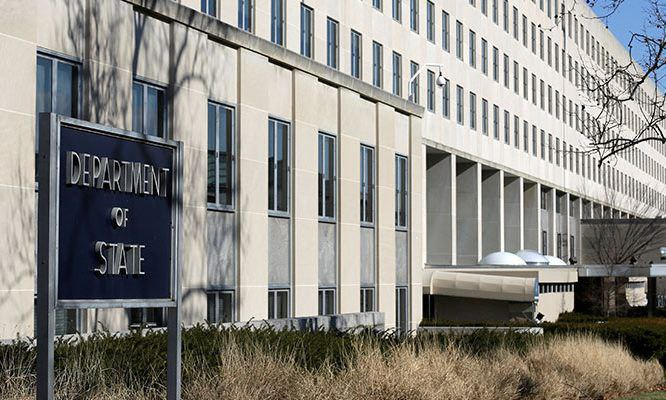RASC News Agency: The Trump administration is undertaking a sweeping reorganization of the U.S. Department of State, signaling a significant shift in America’s foreign policy architecture. Among the most consequential reforms is the elimination of the Special Envoy for Afghanistani Women, a post originally established to advocate for the rights and welfare of women and girls from Afghanistan in the aftermath of two decades of conflict. The decision has sparked widespread concern among human rights defenders and policy analysts, who warn that dismantling this role sends a troubling message about the United States’ long-term commitment to gender rights in fragile and conflict-affected regions.
According to a report by The New York Times, a draft executive order circulated within the administration outlines a comprehensive plan to dissolve various offices and initiatives dedicated to the promotion of democracy, human rights, climate change, and immigration. The stated objective is to streamline the department’s bureaucratic structure and realign its focus with the national security priorities and strategic vision of President Donald Trump. The termination of the Special Envoy post comes amid escalating concerns about the status of women under Taliban rule in Afghanistan, where basic freedoms and access to education and employment for women have been systematically rolled back. Observers fear that without a dedicated advocate within the State Department, the plight of Afghanistani women will be further marginalized on the international stage.
Simultaneously, U.S. Secretary of State Marco Rubio on Tuesday unveiled a broader plan for institutional reform at the Department of State, citing the agency’s cumbersome administrative apparatus and diminishing operational efficiency as key motivators. In a public statement, Rubio argued that while the department has significantly expanded over the past 15 years, its effectiveness has not kept pace with the growth in budget and staff. He asserted that the new reforms aim to refocus the State Department’s mission toward tangible outcomes and measurable impact, rather than ideologically driven agendas. “For too long, the department has been preoccupied with advancing niche priorities that do not align with the strategic interests of the United States,” Rubio said. “We need a foreign policy apparatus that is responsive, lean, and firmly rooted in serving America’s core national objectives.”
Under the proposed restructuring, offices deemed redundant or misaligned with the administration’s priorities will be disbanded, and programs lacking strategic value will be discontinued. The reform package is expected to be fully implemented by October 1, 2025, pending internal review and legislative oversight. Rubio concluded by emphasizing the need for a State Department that not only represents American interests abroad but also adapts swiftly to a dynamic global landscape. “Diplomacy in the 21st century requires clarity of purpose, agility of action, and an unflinching commitment to the national interest,” he said. “These reforms are not just necessary they are long overdue.”






